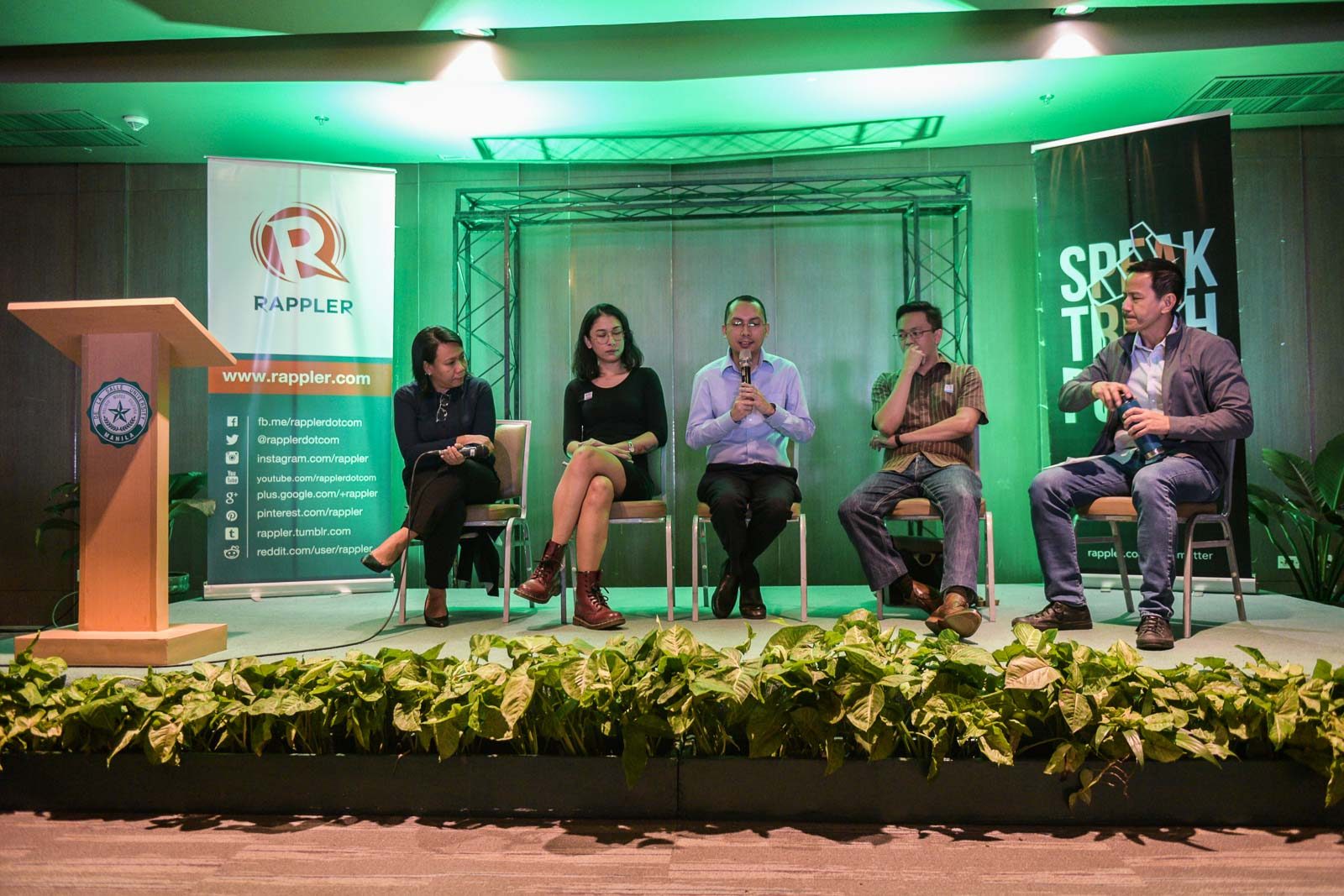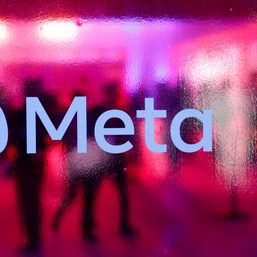SUMMARY
This is AI generated summarization, which may have errors. For context, always refer to the full article.

MANILA, Philippines — Why do we still fall for blatant lies? Are social media platforms to blame for our retreat into information silos? What can we do about the disinformation epidemic? Are current interventions effective?
Participants, along with facilitator Vincent Lazatin and panelists Christian Alis, Aly Suico, Diwa Malaya Quiñones, and Dr. Cheryll Soriano tackled these questions in the 2019 Social Good Summit Manila Huddle session called “Shaping the digital culture in the PH amid hate and disinformation.”
According to the panelists, the problem of disinformation requires solutions that look at the root of what makes people susceptible to them in the first place.
Diwa Malaya Quinones, a social psychology professor from the University of the Philippines, said that individuals believe misnformation because we live in a post-truth world: “We’re living in our versions of truth and why that’s so, it’s because we are biased individuals. We are bounded by our own rationalities. We’d like to believe in a world that is safe for us and so we want to protect that.”
“Those information from your social media that aligns with our version of truth, we will accept as truth. More so if these messages have very affective and value-expressive components when they are of the same values that we hold, when they are of the same opinions that we have, then we’ll take them in as truth,” he added.
Dr. Cheryll Soriano from De La Salle University said that digital literacy is not sufficient to address the problem of echo chambers and disinformation. She said that interventions should also include efforts to better understand how people form biases and where they come from.
“It appears to me that it’s necessary to go back at the level of how people’s biases are crafted to begin with and how we can promote the tolerant society such that these biases, when you encounter information that may counter your biases but is actually mind-opening information, you will be capable of accepting that new information and shrug off your bias and question your bias.”
Dr. Soriano also said that civic responsibility should be connected to media and information literacy.
“If we think of the consequence of the personal or individual level, maybe wala (there isn’t). But if we think about the consequence in the context of a larger democracy and once we consider the promotion of a healthy public discussion as crucial element of a democratic institution —and if we don’t act on it, it will crumble— baka mas maintindihan ng mga bata (maybe children would understand better) why we shouldn’t be promoting false information, why we have to be concerned about false information.”
Dakila Collective’s Aly Suico agreed that approaches to solutions should also be more inclusive and relatable.
“Maybe incorporate na kailangan i-relate natin sa tao kung ano ba stake nila dito. How do I relate ‘Ano epekto sa akin ng algorithm?’ if Facebook is free naman?”
(Maybe incorporate that we need to relate to them their stake. How do we relate ‘What’s the effect of algorithm on me?’ if Facebook is free?)
“But do they understand that if something is free, then the product is them – ‘yung tao mismo, ‘yung data niya (the person, his data),” she said. “Maybe revolve the discussions and solutions into making it more relatable to people. More directly on how it affects them, their families, and their community and their civil rights as well because your rights offline should be the same rights that you hold online.” —Rappler.com
Add a comment
How does this make you feel?





There are no comments yet. Add your comment to start the conversation.